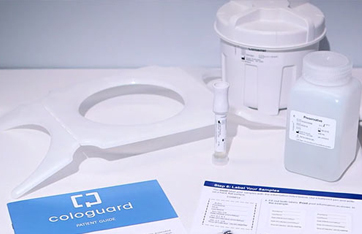Colorectal cancer is both preventable and curable when found early. Colorectal cancer is prevented by removing precancerous colon polyps. It is cured if cancerous change is found early and is surgically removed before the cancer cells spread to other parts of the body. The National Polyp Study showed in its surveillance program that individuals who had their polyps removed experienced a 90% reduction in the incidence of colorectal cancer. The few patients in the study who did develop colorectal cancer had their cancer discovered at early, surgically or endoscopically curable stages. Since most colon polyps and early cancers are silent (produce no symptoms), it is important to do screening and surveillance for colon cancer in patients without symptoms or signs of the polyps or cancers.
The life-time risk for an adult American to develop colorectal cancer is approximately 6%. Fecal (stool) occult blood tests and flexible sigmoidoscopic examinations are the recommended screening tests for these individuals at average risk for developing colorectal cancer. These tests are designed to detect and to prompt removal of precancerous polyps and identify early cancers in order to decrease mortality from colorectal cancer. Stool testing and flexible sigmoidoscopy are affordable, easy to perform, and comfortable for healthy individuals.
Many individuals are at higher than average risk for developing colon cancer because of a family history of colon cancer, history of chronic ulcerative colitis, rare hereditary colon cancer syndromes, or a history of colon polyps or cancer. Periodic surveillance colonoscopies are recommended for these individuals to remove precancerous polyps, and/or to detect early cancers. Such testing will typically be recommended to begin at an earlier age than it will for those with average risk.


